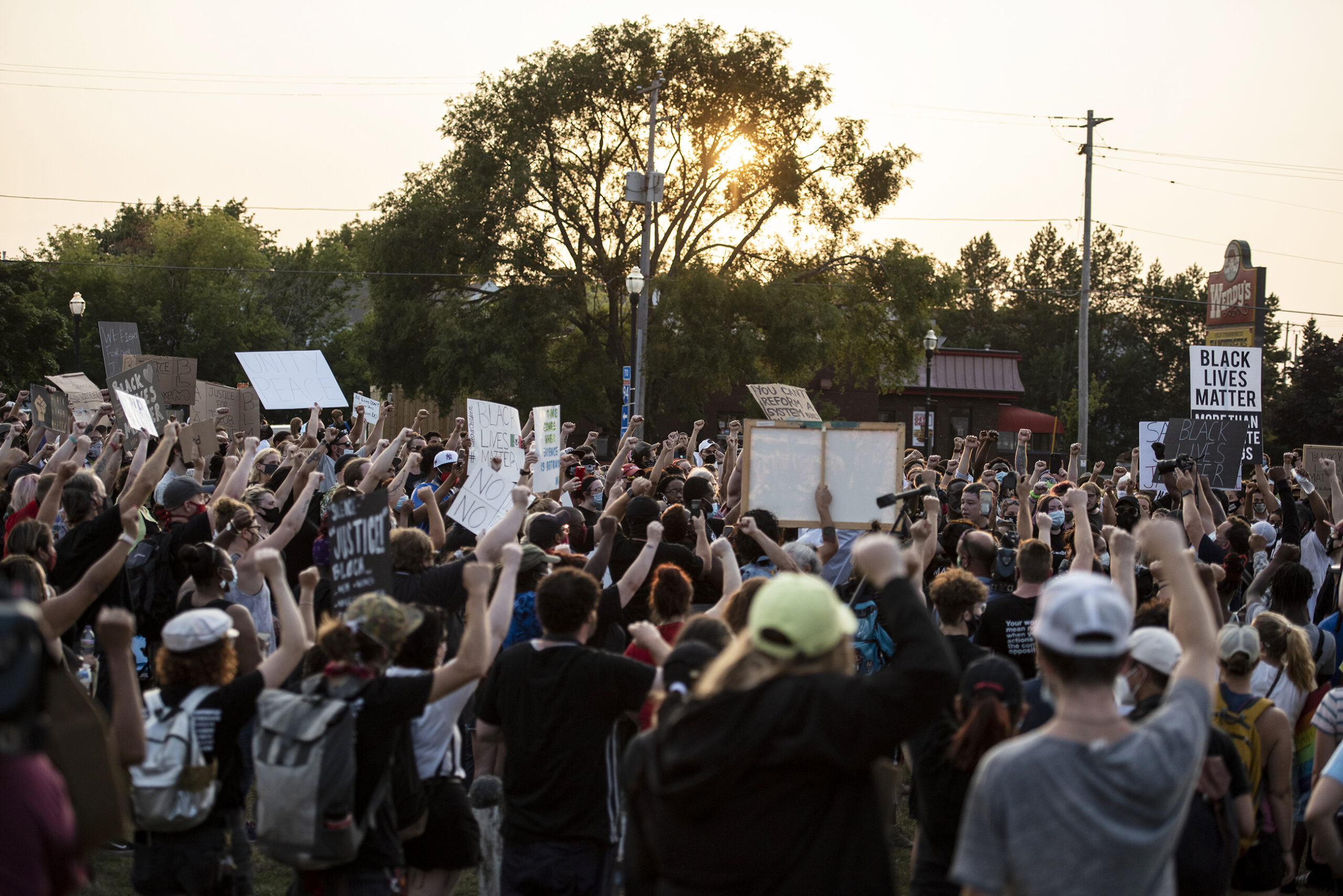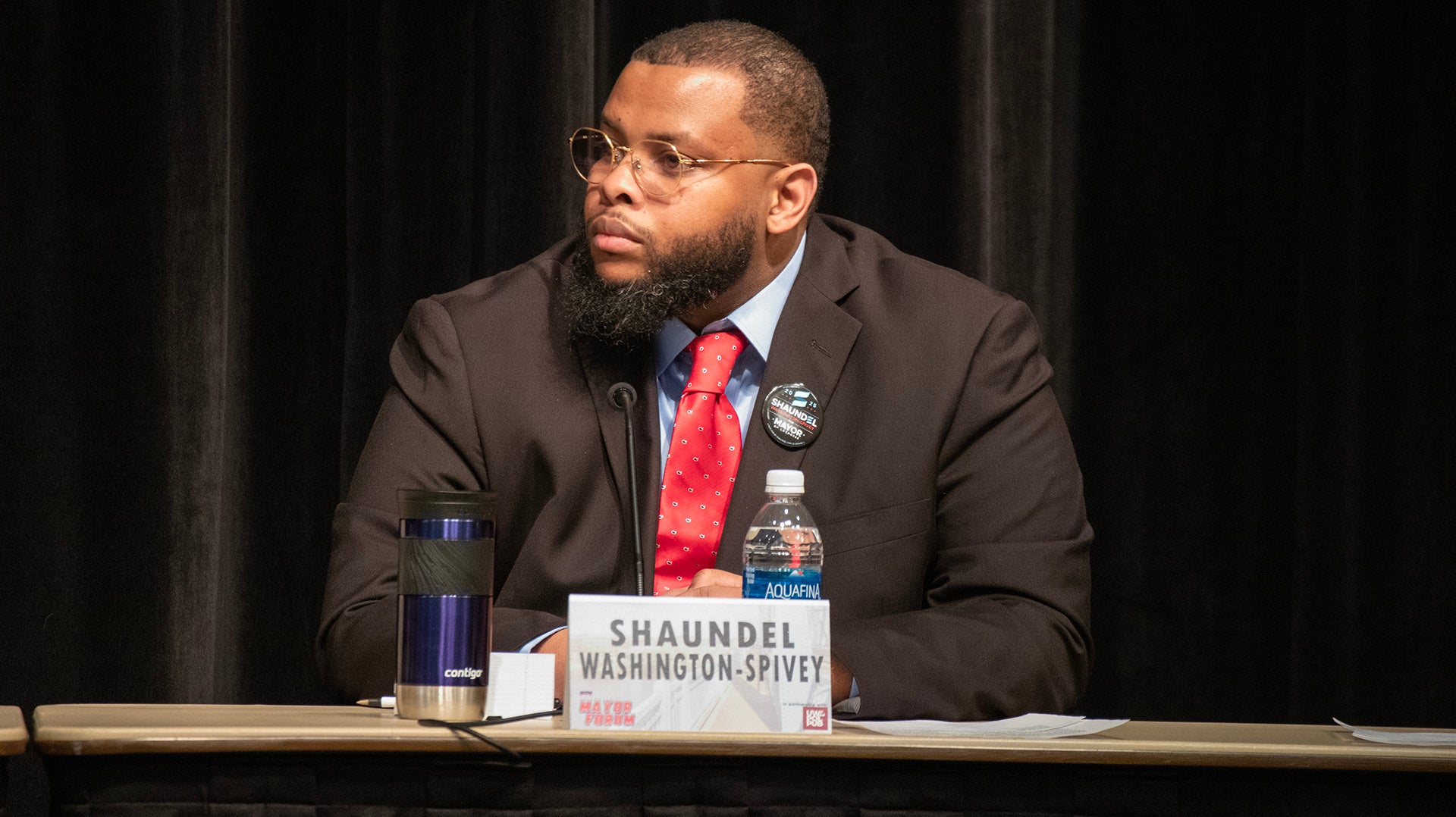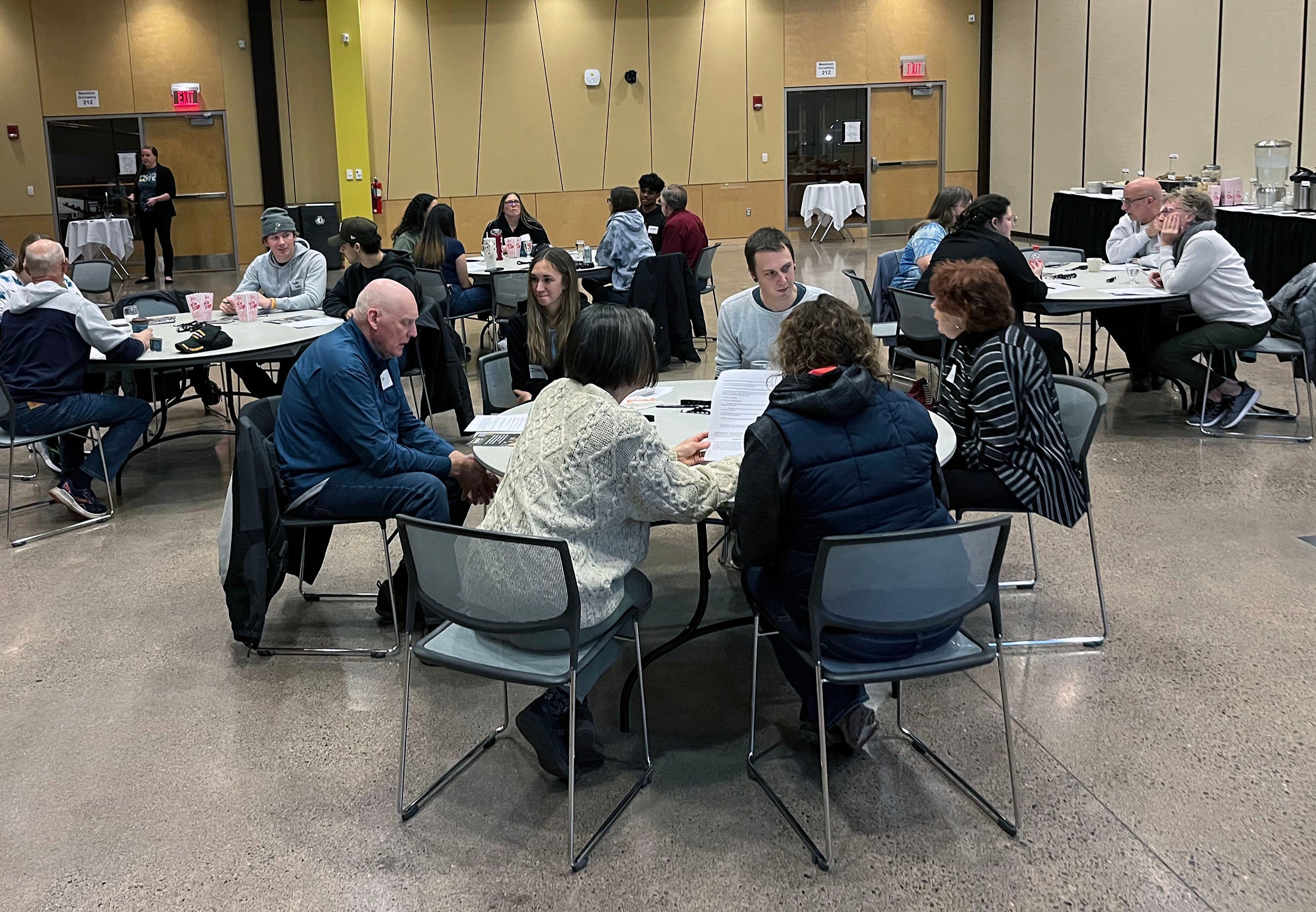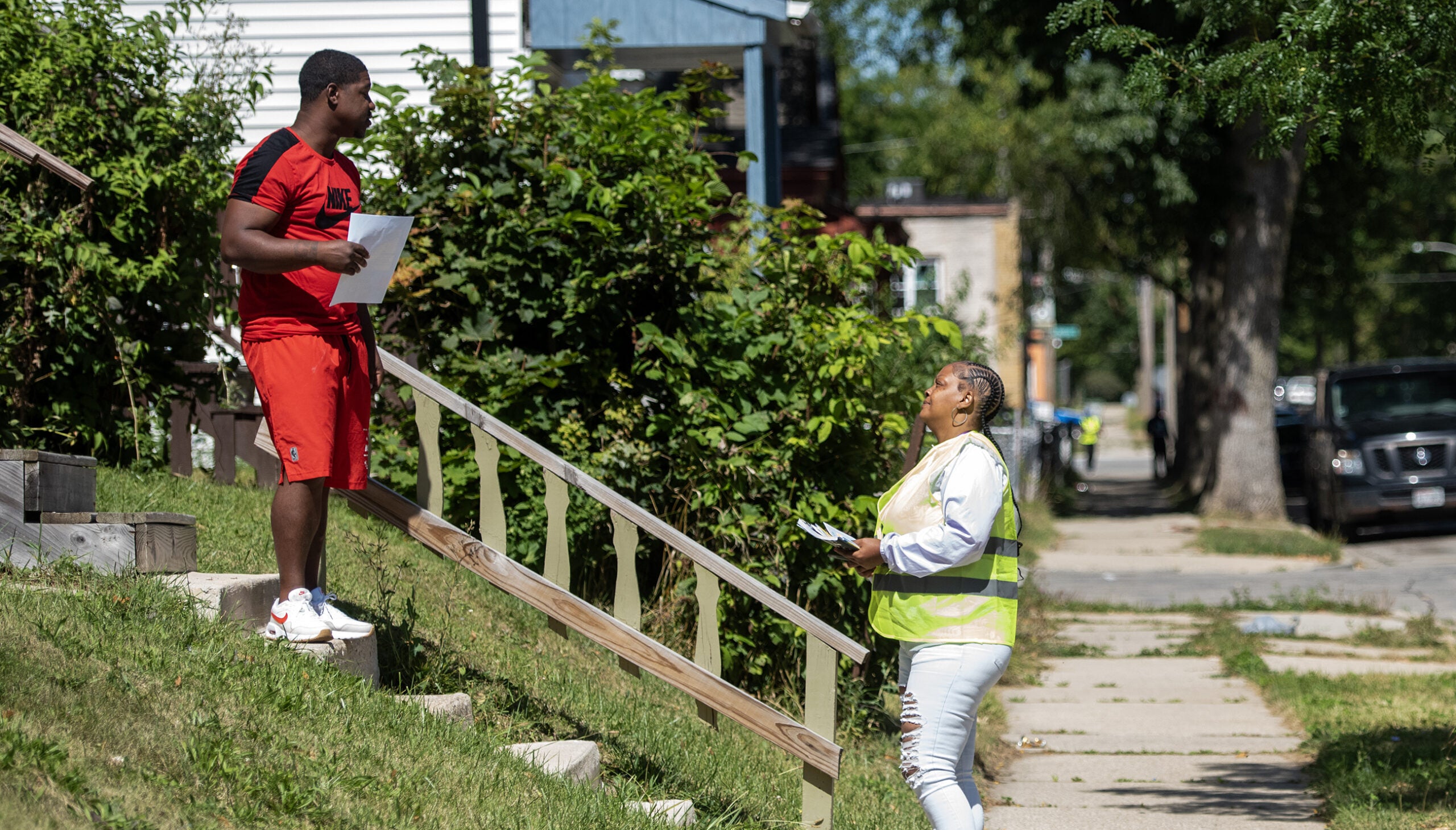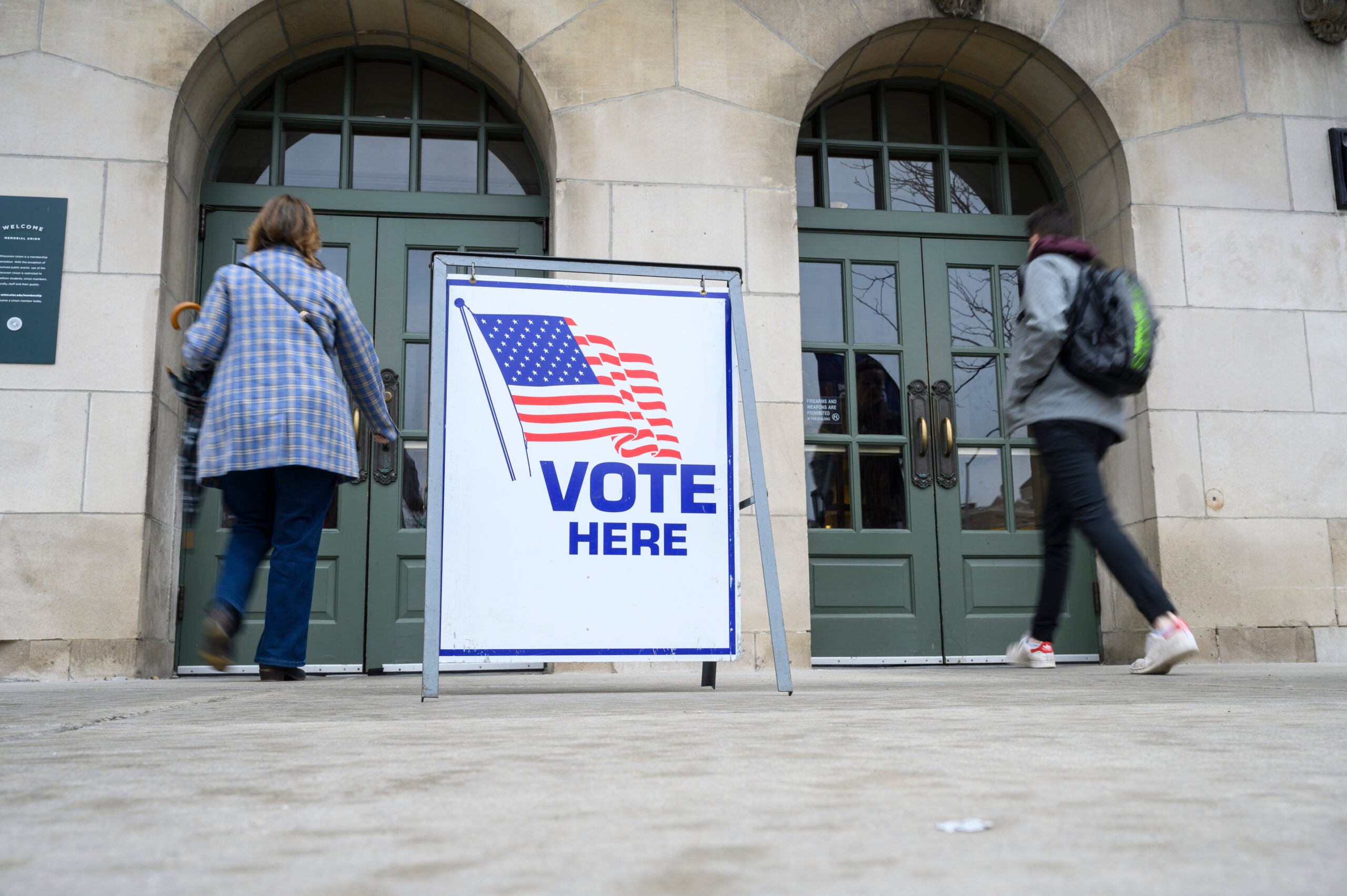With two weeks to go until Election Day, the country is facing simultaneous crises: the coronavirus pandemic, growing economic hardship, and ongoing racial turmoil.
This summer, a huge amount of energy built up around the Black Lives Matter movement throughout the country, and in Wisconsin. Now, the question is whether that energy will translate into votes.
In late September, MKE Black, a group that advocates for Black businesses in Milwaukee, hosted the “Black Voter Block Party,” a gathering to promote the Black business community and encourage people to vote.
News with a little more humanity
WPR’s “Wisconsin Today” newsletter keeps you connected to the state you love without feeling overwhelmed. No paywall. No agenda. No corporate filter.
Kayla Lewis-Allen drove in from Madison to talk to people about voting and promote her business, which is a series of web shows about Black life and relationships. She said it’s been a while since she cast a ballot.
“I can be completely honest, I have not voted since Barack Obama,” she said.
But this year is different. Lewis-Allen is excited to vote, she said, “because of everything that’s been going on.”
“We had COVID happen, then Black Lives Matter was booming,” she said. “I think that was the switch that everybody needed.”
She said learning about George Floyd, Breonna Taylor, and Jacob Blake, and watching the protests this summer made her think her vote could actually make a difference, and she thinks there are lots of other people like her.
“I talk about it with my friends, my husband,” Lewis-Allen said. “My son is 11 years old, and he’s like, ‘I wish I could vote,’ so like everybody’s getting (in on) this conversation.”

Kayla Lewis-Allen at the MKE Black “Voter Block Party” on Thursday, Sept. 24, 2020, at Company Brewing in Milwaukee, Wis. Angela Major/WPR
But getting people motivated by the protests is one thing. Getting them motivated by the candidates on the ballot is another.
Republican President Donald Trump has criticized the movement and sided with police on issues like use of force. Democratic nominee former Vice President Joe Biden and his running mate, U.S. Sen. Kamala Harris, have supported the movement, but Biden has been criticized for his tough-on-crime record as a senator, and Harris for her record as a prosecutor in California.
Just a few tables over at the Milwaukee block party event, Katie Avila Loughmiller said some people feel like the election won’t necessarily change how the criminal justice system treats Black people.
She works with Milwaukee Action Intersection, a group that supports community and protest organizers.
“I think there’s a lot of people who feel exhausted and might not be as energized to go vote,” she said.
Despite the exhaustion, Avila Loughmiller said now is not the time to give up on voting.
“There’s another group of people, myself included, who are saying, ‘Please, this isn’t the time to get exhausted, this is the time to continue to organize and strategize.’”
It’s unclear exactly how the general public’s views of the movement could shape the election. According to polling from Marquette University Law School, support for the movement in Wisconsin surged this spring after the death of Floyd at the hands of Minneapolis police before it declined slightly later in the summer.
It’s stayed relatively steady since then, even after the police shooting of Blake in Kenosha, the violence that followed, and the visits to Kenosha by both presidential candidates.
But Marquette poll director Charles Franklin said both the Republican and Democratic party bases are paying attention.
“It’s very motivating for the folks that are taking part in the protests or sympathizing with the protests,” he said. “But, folks on the pro-Trump side also see it as an opportunity to mobilize fear of, as they would say, crime and violence in the cities.”
Wisconsin Public Radio, © Copyright 2025, Board of Regents of the University of Wisconsin System and Wisconsin Educational Communications Board.

